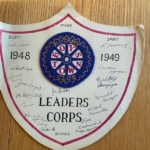How to practice walking the talk with your values
I believe values need to be aspirational, not descriptive. The best values inspire you to better actions, not just define your current state. This is true with organizational values as much as it is with personal values.
For example, I have, historically, had a problem with control, anxiety, and patience. When I don’t have control I get anxious. And when I get anxious I get impatient. And when I get impatient I’m prone to taking it out on people around me – in the form of pressure, frustration, and disrespect.
My number one value is contentment, which means being satisfied and at peace with the present moment. However, this value is not a description of myself. It is an aspiration.
After speaking at a conference in Whistler, B.C., I caught a shuttle to the Vancouver airport (about a three hour trip). Traffic wasn’t as bad as expected and we got there early enough that there was time to catch an earlier flight. I found out there were seats available on the earlier flight for a $150 change fee.
I immediately went to frustration. I allowed the guest service person to take away my contentment and peace of mind. Annoyed, and upon reflection, I wondered why I gave my serenity and personal power away to a person I didn’t even know. Then I sat and re-read my values and decided it was more important to be contented than it was to be right.
I used the 90 minutes to relax, make some calls to friends, and reflect on what really matters in my life.
When I walked on the originally booked flight, I was a lot more contented than I was at the guest service desk.
I am practicing walking the talk. And I’m making imperfect progress.
What is your aspirational value?










